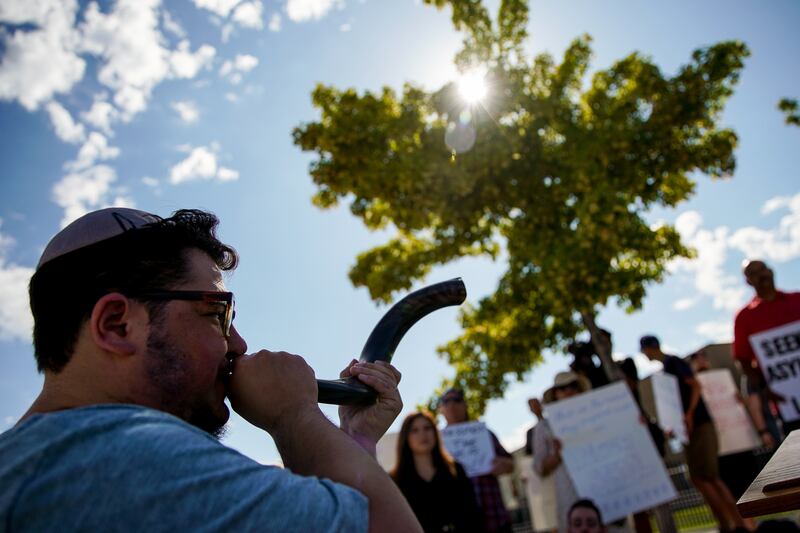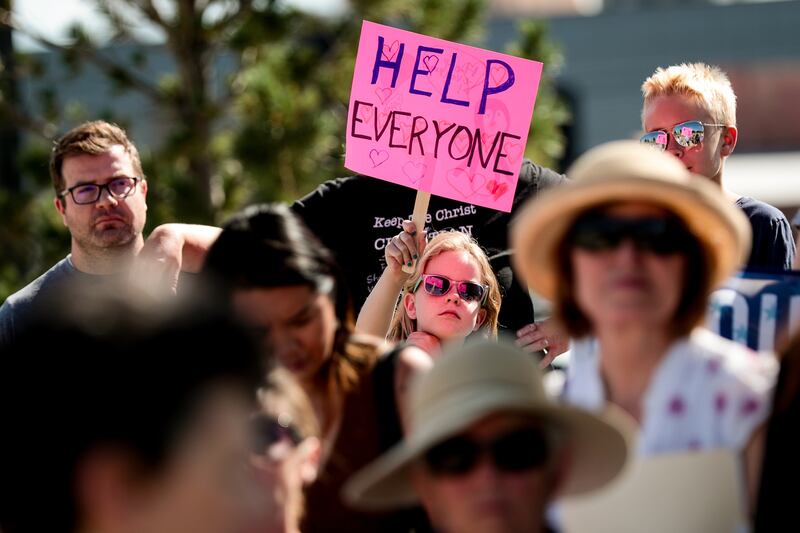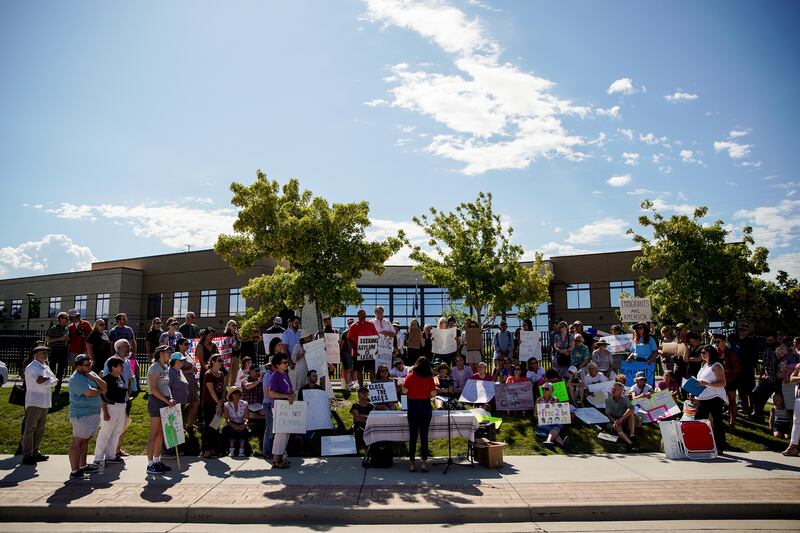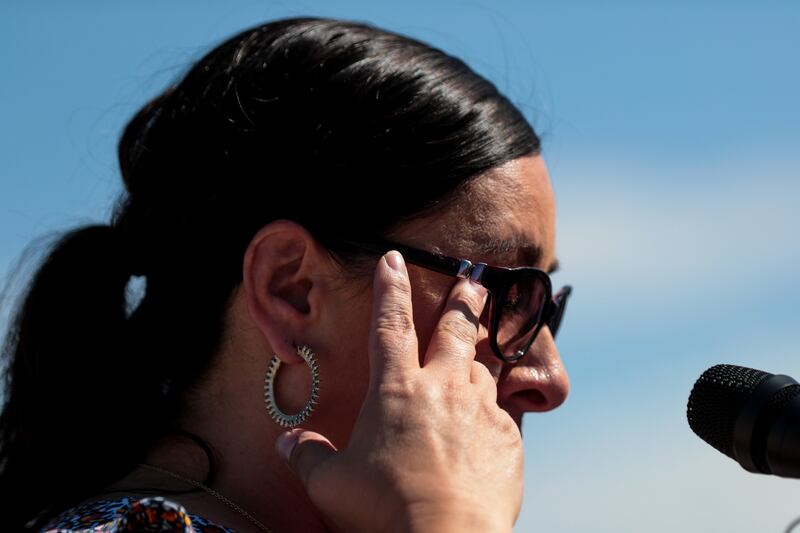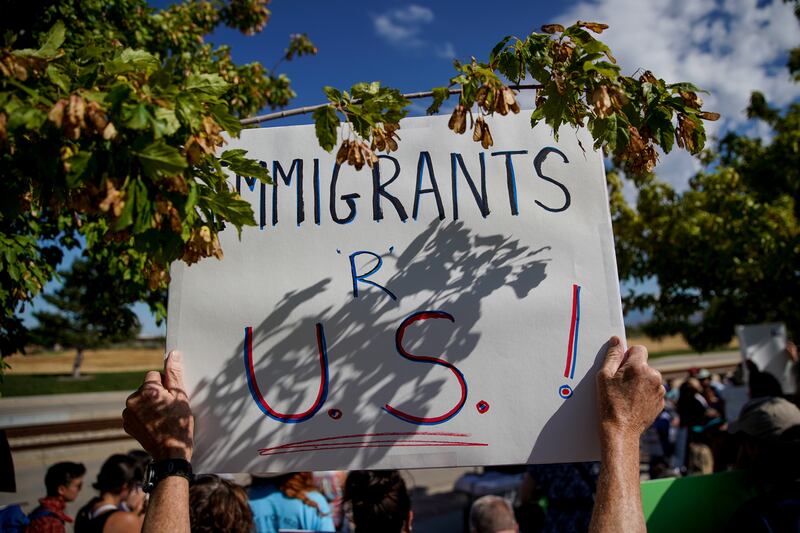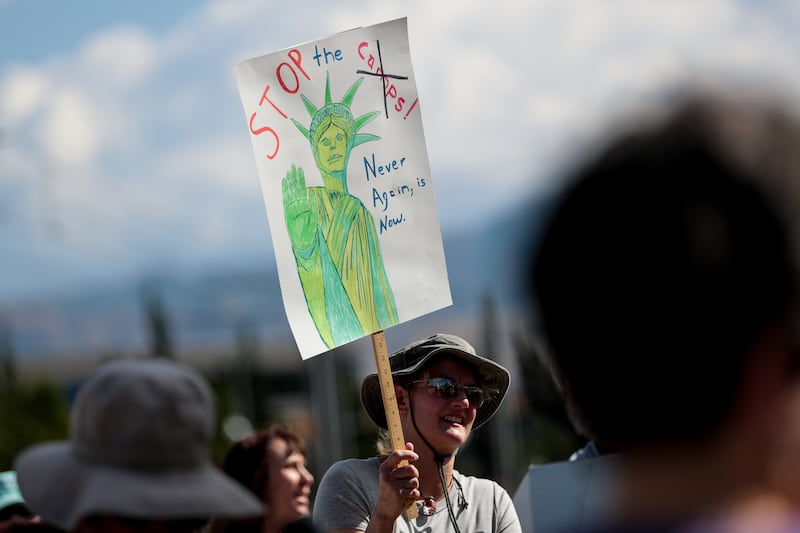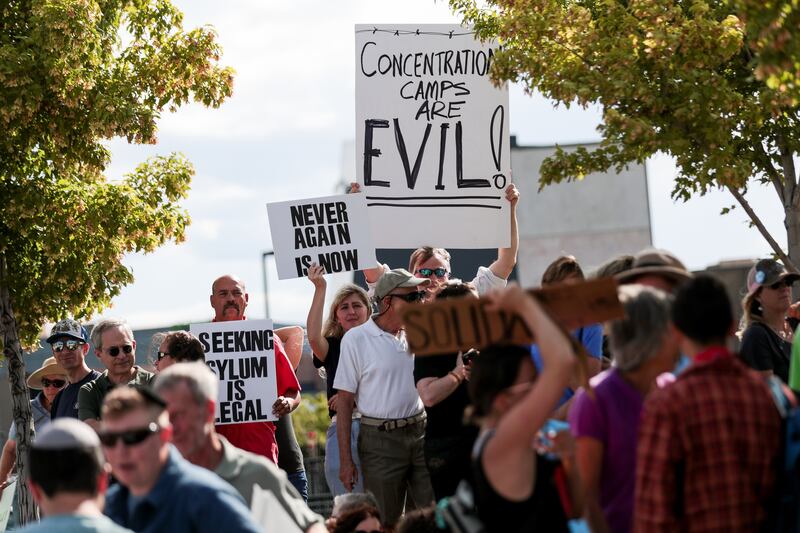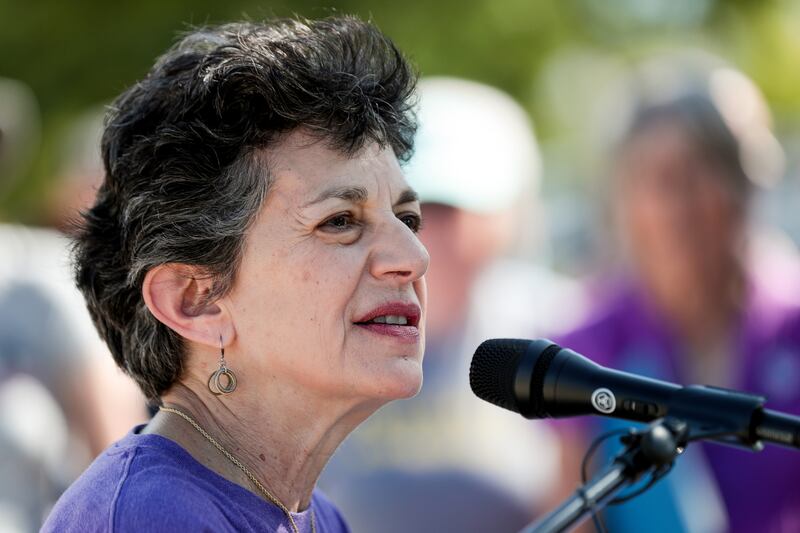WEST VALLEY CITY — Drawing parallels to their faith's history, members of Utah's Jewish community rallied Saturday in front of the local U.S. Immigration and Customs Enforcement field office against the country's current immigration policies.
"I'm disturbed about what is happening in our country, and these detention camps and their conditions. And by the malice behind the treatment of these people who are essentially refugees, that's what they are, and we should start recognizing that," Anne Menzies said.

"This is a problem of our own making," she said.
The group of about 80 met on the Jewish holiday of Tisha B'Av, which marks the destruction of the first two temples in Jerusalem. During the day seen as the saddest in Judaism, members of the faith fast, pray and mourn.
During the vigil organized by several Jewish organizations — one of more than 50 that were scheduled nationwide this week — the group also joined in several prayers for immigrants and refugees.
On Wednesday, 680 people were detained in Mississippi in what's being called the largest immigration raid in a decade, the Associated Press reported. More than 300 people were sent home Thursday and expected to appear before immigration judges, the AP said.
Most at the rally carried signs, some saying phrases such as "Never Again," "Close the Camps," "Concentration Camps are Evil," and others drawing connections between the immigration policies and plights faced by many Jewish people throughout history.
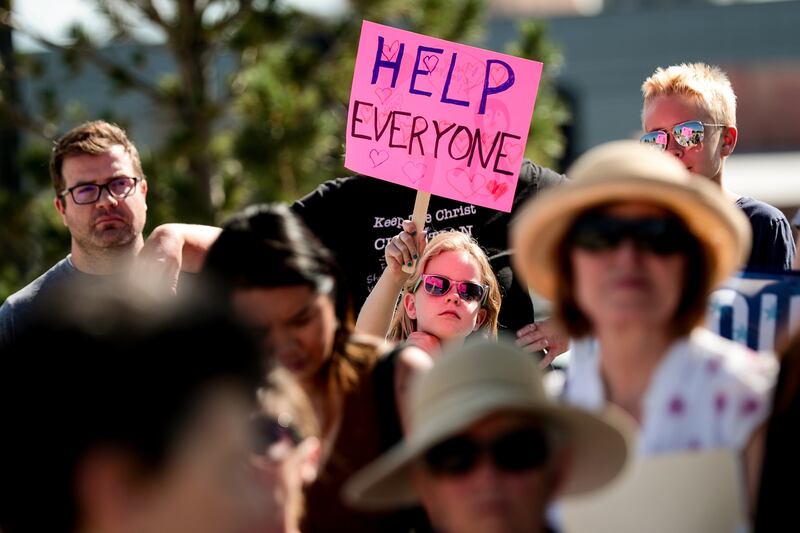
"Everyone who visits a detention camp or holding facility tells the same story: people crowded into rooms, cages designed for populations a quarter of their size," said Eileen Hallet Stone, section president of the National Council of Jewish Women.
"Scarce water and moldy, nonnutritious food. Lack of access to the outdoors and sometimes even the indoors. The inability to call one's family or contact a lawyer. And that constant fear of what happens next. That constant fear," Stone said. "Our nation is in a dark place. A narrow place. A place that feels familiar as we observe the day of mourning."
Child psychologist Dr. Doug Goldsmith said the impacts caused on children held in detention centers, or whose parents are taken to centers, can last a lifetime.
"The trauma the U.S. is creating will be life changing for thousands of children. When children are forcibly separated from their parents, they are irreparably harmed."
He said they'll be at high risk for anxiety, depression, alcoholism and drug abuse.
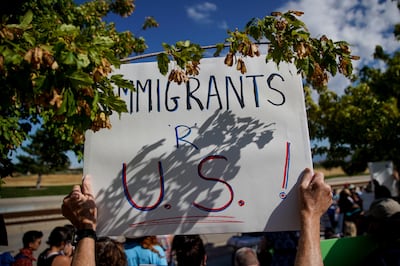
Due to stress, their brains will be placed at "heightened levels of alert" that will make it difficult for them to focus and regulate their emotions for the remainder of their lives, according to Goldsmith. Some will become "so angry," he said, and could show high levels of aggression in their schools and communities.
"We must do all that we can do stop this atrocity," Goldsmith said.
Eric Goldman, director of Utah Jews for Refugees, emphasized that rally organizers were not attempting to draw connections to the Holocaust and the Trump Administration's immigration policies.
"It's not really related to the Holocaust. It's related to Jewish history going back 5,000 years. And our Bible begins with Jews leaving Egypt and crossing the Red Sea and spending 40 years in the desert," Goldman told the Deseret News.
Jews were "kicked out" of various countries throughout history. In 1492, they were massacred in Spain and banished, he said, and several other similar events followed through the centuries.
"At the moment, particularly in America, we are in a very good situation for which we're ever so thankful. But it took 5,000 years to find a safe country like this and we want to do the same for these folks at the border."

